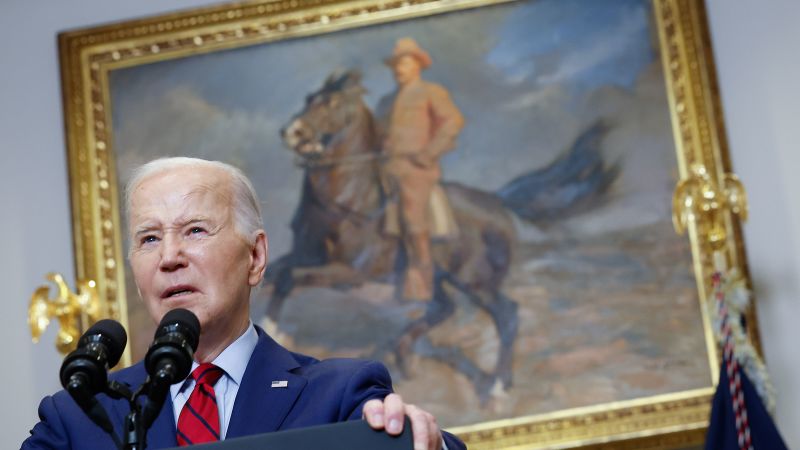President Joe Biden is facing a challenging situation as protests erupt on college campuses in response to civilian casualties in Israel’s war in Gaza. The protests could escalate through the summer and into the Democratic National Convention, presenting a threat to Biden’s reelection prospects and his ongoing clash with Donald Trump. Biden broke his silence on the matter, emphasizing the importance of peaceful protests while also upholding the rule of law and the right to safety on campus.
The widespread campus protests are not as intense as those during the civil rights movement or the Vietnam War era, but the potential for a prolonged period of unrest remains. Biden’s address at the White House was a delicate balancing act aimed at avoiding alienating progressive voters or appearing weak in the face of Trump’s criticisms. His lack of personal experience in protest movements, coupled with a preference for conventional methods of change, may hinder his ability to effectively address the situation and navigate the political landscape.
Biden’s remarks also aimed to reach the moderates and middle Americans who value stability, contrasting with the extremism on both the left and right. However, his approach may not resonate with a younger generation that is increasingly disillusioned with traditional policies, particularly regarding the Israel-Hamas conflict. The president’s steadfast support for Israel, despite international criticism, could further alienate young voters and erode his support base in the upcoming election.
Progressive leaders like Sen. Bernie Sanders warn that Biden risks a fate similar to President Lyndon Johnson, who faced a fractured support base over the Vietnam War and student protests, leading to his decision not to seek reelection. Young voters in particular disapprove of Biden’s handling of the Israel-Hamas conflict, posing a significant challenge to his reelection campaign. However, the lack of direct American involvement in Gaza limits the potential for societal impact compared to past conflicts.
Biden’s approach to the campus protests and his stance on the Israel-Hamas conflict reflects his prioritization of national interests and attempts to navigate a complex political landscape. While denouncing authoritarianism and emphasizing the importance of dissent, he must also win over his base and address the concerns of young voters who feel increasingly disconnected from traditional political institutions. The coming months will be crucial in determining Biden’s ability to maintain support and secure a path to reelection.
In conclusion, President Biden’s handling of campus protests and the Israel-Hamas conflict presents a challenging political landscape as he seeks to balance the demands of different voter demographics and maintain stability in the face of growing unrest. The coming months leading up to the election will be pivotal in determining his ability to appeal to a diverse electorate and secure a second term in office.


